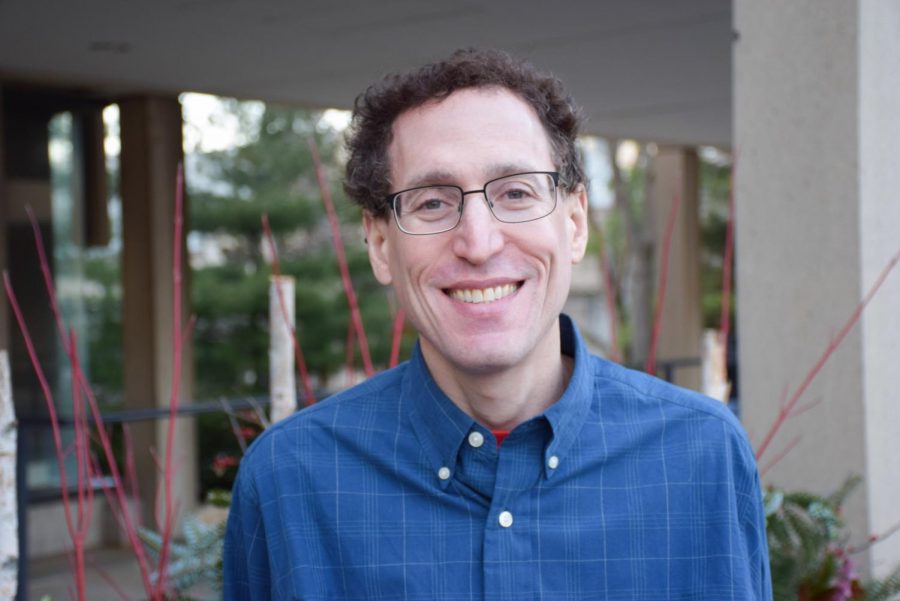NU professor, students help conduct largest ongoing national survey on pandemic behavior
Photo courtesy of James Druckman
Political science Prof. James Druckman. Since last April, Druckman has been working with researchers from Harvard, Northeastern and Rutgers on the COVID States Project, the largest ongoing national survey tracking people’s opinions and behavior during the pandemic.
February 12, 2021
Political science Prof. James Druckman is working with researchers from Harvard, Northeastern and Rutgers to survey thousands of Americans every month for the COVID States Project — the largest ongoing national survey tracking people’s opinions and behavior during the pandemic.
“I’ve never been involved in anything that even approaches the speed with which this is moved,” Druckman said. “We wanted to collect data in a way that was able to look at both the spatial dynamics, by having large samples from every state in the country, and the temporal dynamics, by having data over time.”
The team of about 30 researchers and students has published nearly 40 reports since the project began last April, Druckman said. In addition to public health and policy changes, the researchers collect data about how national events have been affecting the pandemic.
“We did definitely pivot at some of those events — around the George Floyd murder, we included in survey questions about protest activity and also tracked gun ownership. We added election questions…we just asked about the insurrection” Druckman said. “You’re talking about a lot of different traumatic events that people are facing.”
Data on issues like mental health provide important insight on the “downstream consequences” of the pandemic, Druckman said. In a May survey, nearly 30 percent of young adults reported feeling depressive symptoms, compared to the typical pre-pandemic rate of approximately 7 percent, he said.
The researchers have also spoken to policymakers about their findings, he added, including to President Joe Biden’s transition team about vaccine messaging. Political science Ph.D. student Jennifer Lin, who is on the research team, said she thinks this data is particularly important as the country ramps up its vaccination efforts.
“(The survey asked questions like), ‘If Donald Trump told you to get the vaccine, would you get it?’ or ‘if Joe Biden told you to do it,’ or your favorite celebrity,” Lin said. “We find that, based on who you trust, there’s a significant difference on whether or not you would get the vaccine.”
The researchers send out a survey every month with a slate of core questions and add extra questions based on current events, principal investigator and Rutgers Prof. Katya Ognyanova said. The team’s weekly Zoom calls and ongoing Slack conversations inform what these questions will be, she added.
The team includes experts on public opinion polling, political science, communication and epidemiology, according to the COVID States Project website. Ognyanova said the range of the disciplines represented on the team have allowed the project to expand its breadth.
“That’s the thing that makes this project different,” Ognyanova said. “We are able to work across all of these different fields. We are able to both look at the political aspect of the policies that are being implemented, the public opinion side of it, the communication side of it, but also the health policy, the public health and epidemiology side of this issue.”
Ognyanova said this data will be important in the long-term to understand the consequences of certain public-health decisions and how to mitigate future pandemics.
Weinberg sophomore Anna Wang, a research assistant for the project, said the team’s findings can almost predict and prevent crises. In a report published in January, the team found that while more Americans are social distancing and mask wearing, the rate of increase might not be enough to meaningfully slow the spread of the virus.
“(We) take a survey of a really large group of people and find out, ‘What are the disease-spreading behaviors? What are the ideologies that people might have that might make them more prone to spreading disease?’” Wang said. “The project is meant to predict those behaviors and call out hotspots before things get really bad, in terms of COVID testing and numbers.”
Weinberg freshman Evan Myers, another research assistant for the project, said this data about Americans’ political ideologies has been particularly interesting to him.
When reviewing results from a recent survey, he was struck by how many respondents supported the rioters who stormed the Capitol building, Myers said. The project sheds light on how varied people’s beliefs can be, he added.
“There’s really generalized statements about how this percentage of people believe this thing and this percentage of people believe that thing,” Myers said, “but to see how much more nuanced the opinions are of the American people has been really fascinating.”
Email: [email protected]
Twitter: @maiapandey
Related Stories:
— 80 percent of Americans back passage of new stimulus bill, study says
— As vaccine hesitancy threatens to increase COVID-19 disparities, local experts try to build trust












